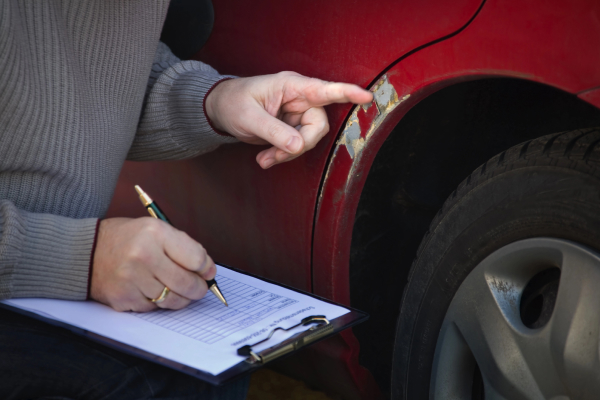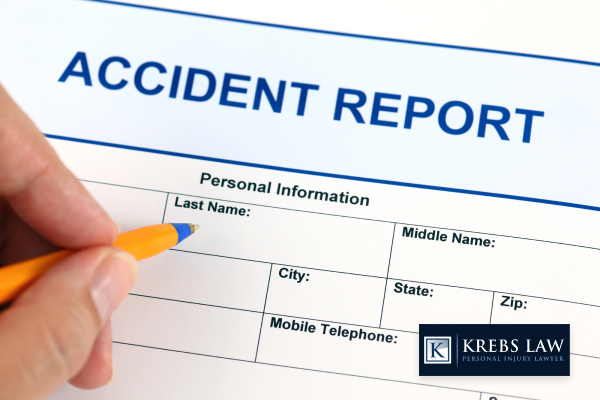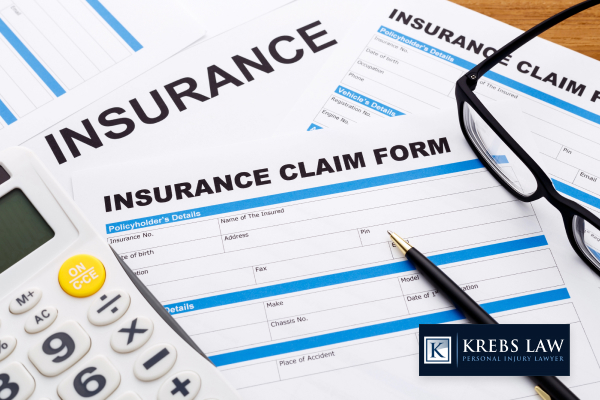This page was written, edited, reviewed & approved by JR Krebs following our comprehensive editorial guidelines. JR Krebs, the Founding Partner, has years of legal experience as a bankruptcy attorney. Our last modified date shows when this page was last reviewed.

When an accident occurs, the immediate concerns often revolve around injuries, property damage, and associated costs. The injured party may often seek compensation through their insurance policy, known as a first-party claim. Yet, there are situations where you may have the right to pursue compensation from another party's insurance. This is where third-party liability claims come into play.
Understanding third-party liability claims is crucial for ensuring you receive the compensation you deserve. At Krebs Law, LLC, we're here to help you handle the complexities of these claims and protect your rights.
Third-party liability claims involve seeking compensation from someone else's insurance provider when that person is responsible for your injuries or property damage. These claims are common in car accidents, where the other driver's insurance is expected to cover your medical expenses, property damage, and other losses.
Third-party liability claims can also arise in cases involving defective products, accidents on someone else's property, or injuries caused by a business' negligence. Alabama is a fault state, meaning a person is held responsible for any damages and must have coverage. According to Section 32-7A-3 of the Alabama Code, driving in the state without liability insurance is illegal.
Most companies and individuals carry liability insurance to protect themselves against the financial consequences of being found liable for someone else's injuries or property damage.
For example, auto insurance policies typically include third-party liability coverage, which covers bodily injury and property damage caused by the insured person.
When you file a third-party liability claim, you ask the other party's insurance company to compensate you for your losses. The claim process can be difficult as insurance companies may try to lessen the amount they pay out or deny the claim altogether.
It's important to understand the steps involved in the claims process and to be prepared to advocate for your rights.

If you've been involved in an accident and believe someone else's home is at fault, you can file a third-party claim with their insurance provider. Here's how the process typically works:
Third-party liability claims can arise in a variety of situations. Here are some of the most common scenarios where these claims might apply:

It's important to understand the difference between first-party and third-party insurance claims. The distinction affects how you seek compensation after an accident.
A first-party claim is filed with your own insurance company. For example, if you're involved in a car accident and file a claim with your auto insurance policy to cover your vehicle damage, that's a first-party claim. First-party claims are typically straightforward, as they involve seeking benefits from your car insurance for coverage.
The minimum liability limits for auto insurance indicate that the policy provides $25,000 in bodily injury coverage per individual. A total of $50,000 is available for all injuries if it results from a single accident. Also, it offers up to $25,000 for property damage per accident.
In contrast, a third-party insurance claim involves seeking compensation from someone else driver's insurance company or provider. This type of claim is more complex, as it requires proving that the other party was at fault and that their insurance policy covers your damages.
Unfortunately, insurance companies don't always act in good faith when handling third-party claims. You have options if your claim is rejected or the insurance company offers a settlement payment that doesn't adequately cover your losses.
Many other drivers and types of insurance coverage may be involved in a third-party liability claim, including:
It's important to know that insurance policies have coverage limits, which cap or coverage limit the amount the insurer will pay for a claim. If your losses exceed the coverage limit, you may need extra compensation through other means, such as filing a lawsuit or using your insurance coverage.

Third-party insurance policies and third-party liability claims can provide crucial financial support after an accident. They can help you cover medical statements, property damage, lost earnings, and other losses.
If you're facing challenges with a third-party insurance claim or need help understanding your legal options, contact us for a free consultation. We're here to protect your rights and help you achieve a fair resolution first party insurance claim.

J.R. is dedicated to providing personalized representation, avoiding a one-size-fits-all approach. He tailors his strategy to the unique challenges and needs of each client and case, ensuring focused and individualized attention.
His practice mainly covers Plaintiff’s Personal Injury, including car and 18-wheeler accidents, slips and falls, dog bites, defective products, and wrongful death. He also handles commercial disputes on contingency, with experience in contracts, construction, and probate. For any dispute headed toward litigation, J.R. develops an aggressive strategy to maximize your recovery through negotiation, arbitration, or trial.
"*" indicates required fields